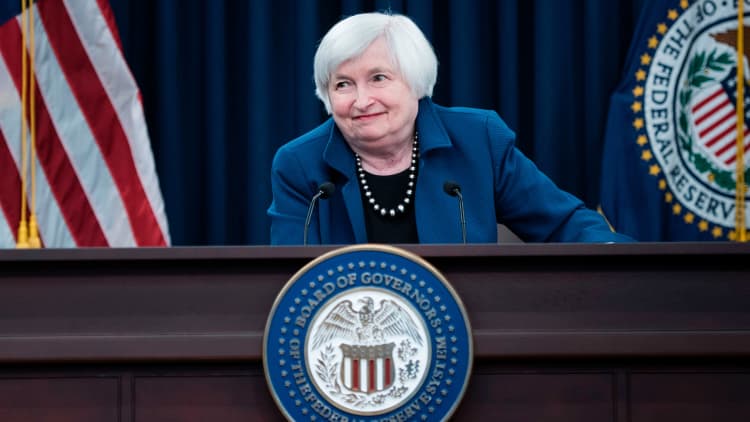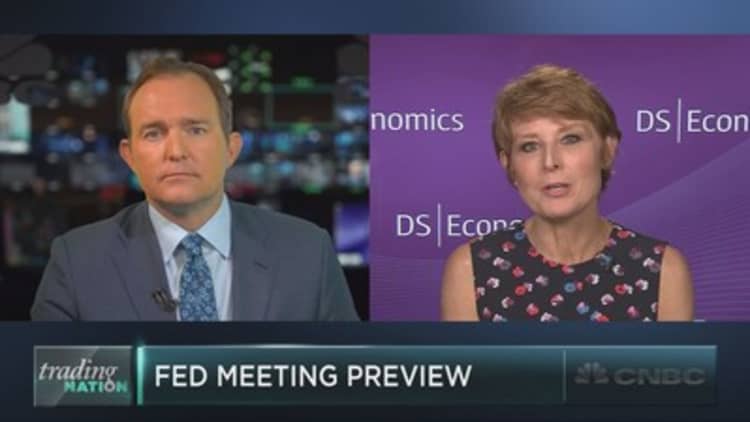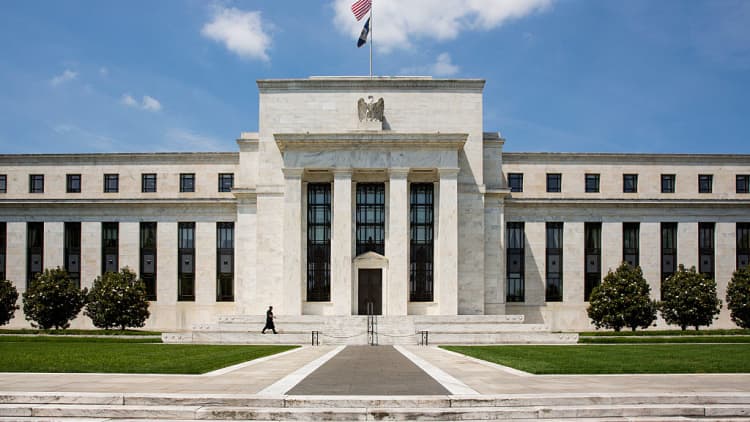
Should Federal Reserve officials meet expectations and raise interest rates next week, they will be doing so over the objections of some high-profile experts, including one who used to work for the central bank.
A coalition of economists released a letter Friday urging the Fed to change the criteria it uses to make decisions. Specifically, the group, called "Fed Up," is advocating for a higher inflation rate target than the current 2 percent level. Among its members is former Minnesota Fed President Narayana Kocherlakota.
Raising the target, the economists argue, will allow the economy to grow further, whereas a steady diet of rate hikes to stave off inflation could choke growth and cause another recession.
Josh Bivens, the director of research at the Economic Policy Institute, said in a conference call that allowing inflation to run higher will provide the Fed some policy cover when the next downturn hits, where it could keep policy looser for longer.
"The last decade should have shown us that the political system severely controls the tools that policymakers have to fight recessions," he said. "I see the higher inflation target as one of these buffers."
Indeed, the Fed has come under a great deal of political scrutiny as it has sought to engineer the economy away from the Great Recession that ended in June 2009. The central bank kept its target funds rate near zero for seven years before gingerly adding three quarter-point hikes since December 2015.
Markets widely expect the Fed to raise another 25 basis points when the Federal Open Market Committee convenes for its two-day meeting next week. Traders have priced in one more hike in December, but the path beyond that is uncertain.
These economists advocate an even slower path than the one on which the committee currently finds itself.
"The conversation about monetary policy rules that we follow going forward is a really important one, and it would have been important even if we hadn't gone through the Great Recession," said Jason Furman, chairman of the Council of Economic Advisers under former President Barack Obama and currently senior fellow at the Peterson Institute for International Economics. "Having that [inflation] target today just leaves you less room than it used to."
Obama himself was a proponent of low interest rates, stacking the FOMC with dovish members while reappointing former Chairman Ben Bernanke then naming Janet Yellen as his successor.
While the Fed presided over a period of recovery and the second-longest bull market in history, the era also will be remembered for its historically slow growth and widening wealth disparities.
"When I write the history of the 2010s, I think both Ben Bernanke and Janet Yellen are going to be judged quite harshly," said Brad DeLong, an economic historian and professor of economics at the University of California at Berkeley.

DeLong believes the two Fed chairs should have been raising rates after the recession ended. Because they waited too long, rate hikes now threaten to send the economy back into a downturn, he said.
"The attempt to push them higher, in fact, will be such a recessionary shock that the Fed will have no room to respond," DeLong said.
To be sure, some of the arguments for a higher inflation target seem counterintuitive — that doing so somehow gives the Fed more room for accommodation in another downturn, or that inflation actually benefits consumers.
However, Nobel economist Joseph Stiglitz said history bears out the position that workers, particularly women and minorities, tend to get a boost when inflation is elevated. Yellen has toyed publicly with the idea of letting the economy run hotter than normal for a while, though she also has said the scenario is not likely.
"The only time when the unemployment rate for these groups goes down and wages go up is when we have a very tight economy, much tighter than the Fed has in mind when it's focusing on a 2 percent inflation target," Stiglitz said. "As far as workers go, the answer is unambiguous: They are the winners in this."
Watch: Why is the Fed getting so aggressive now?



